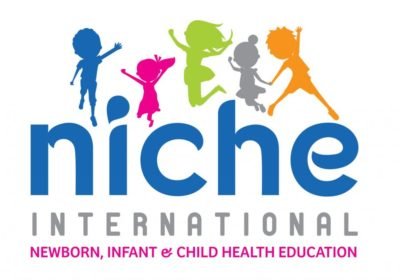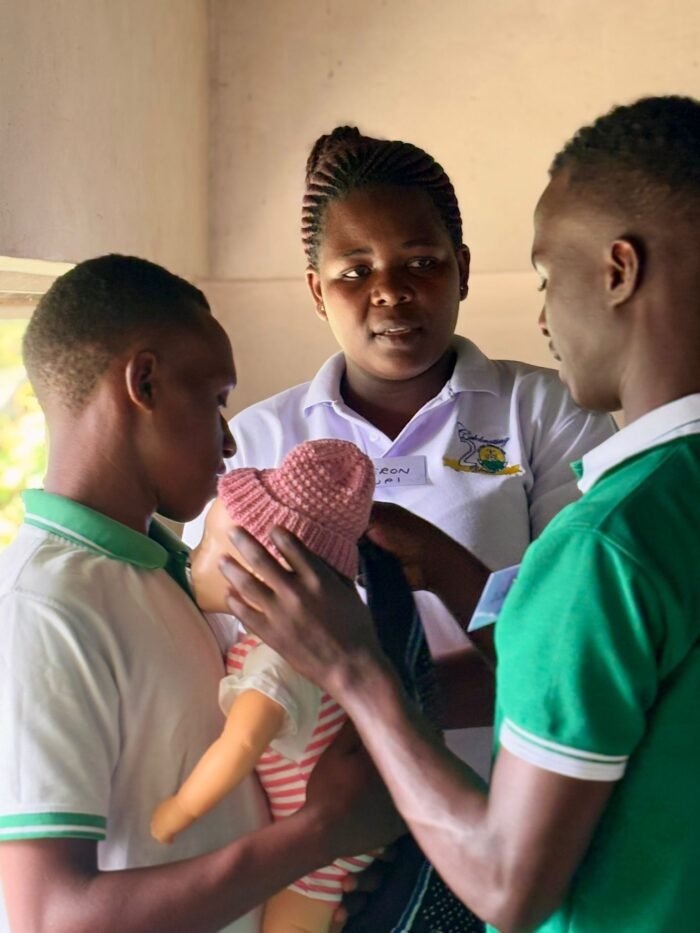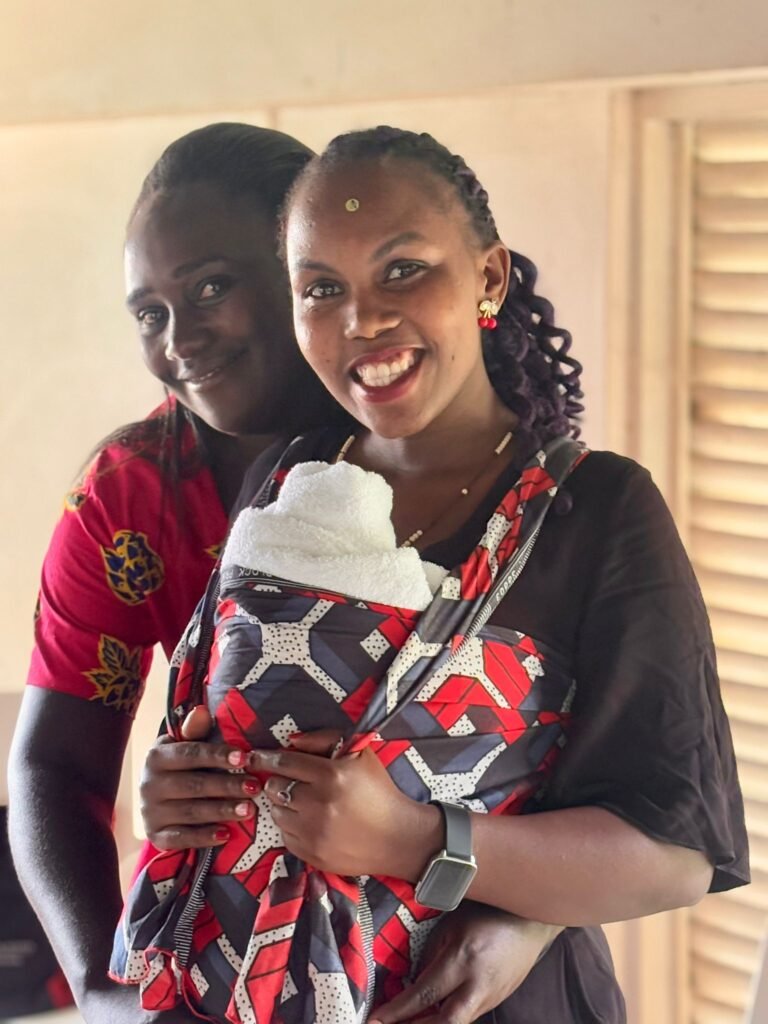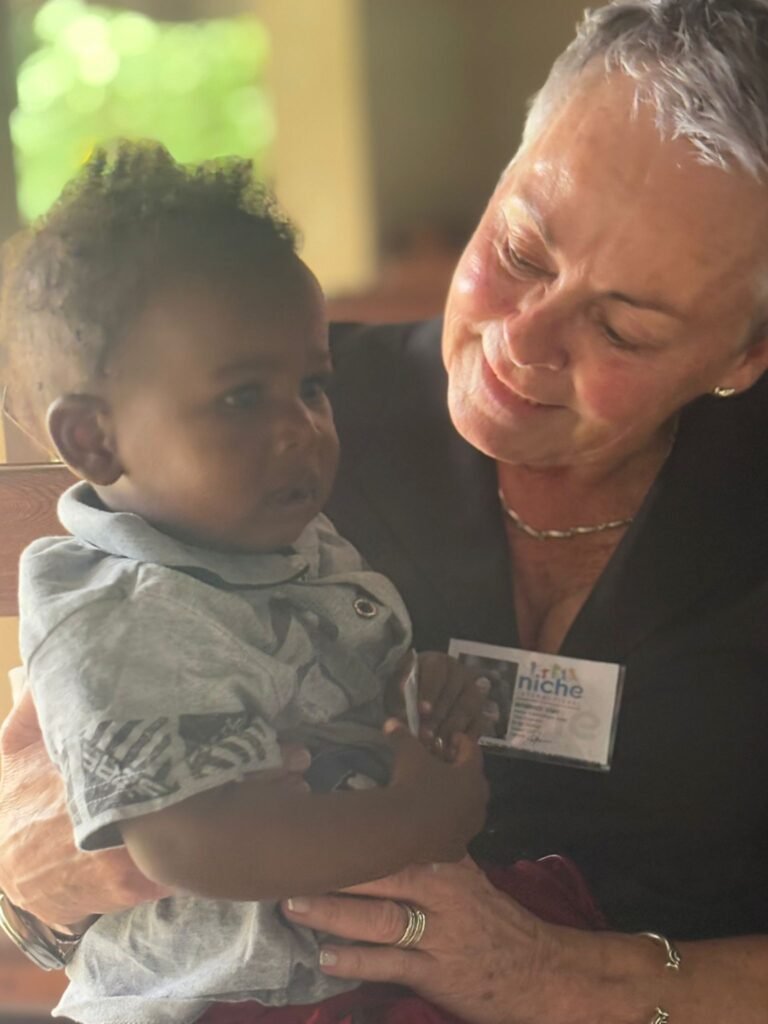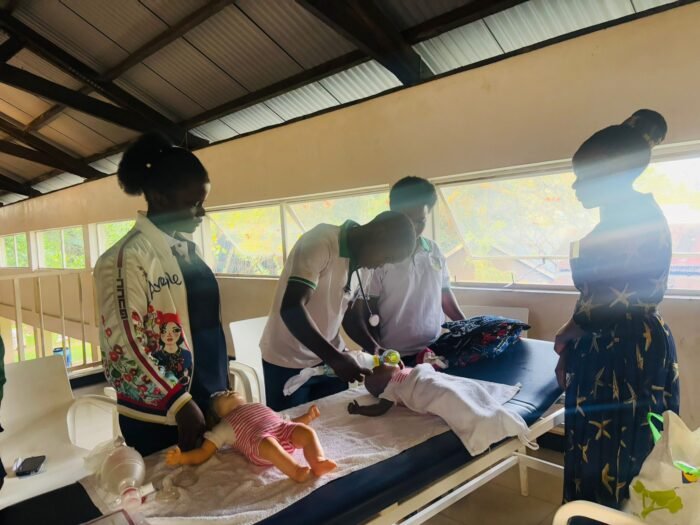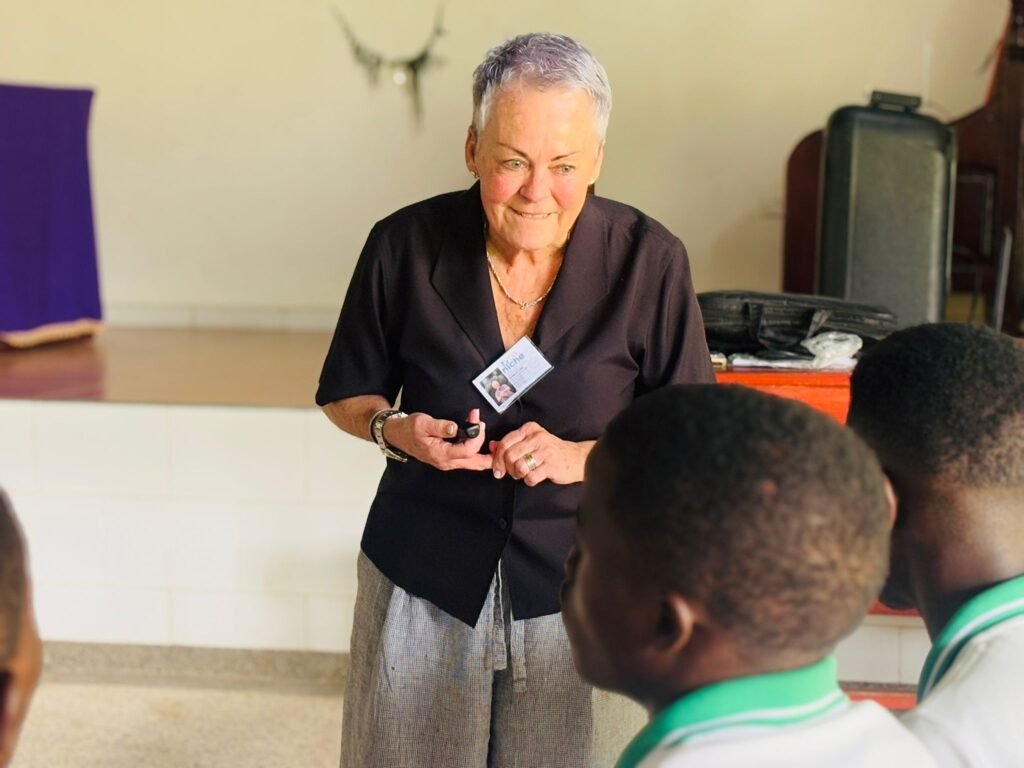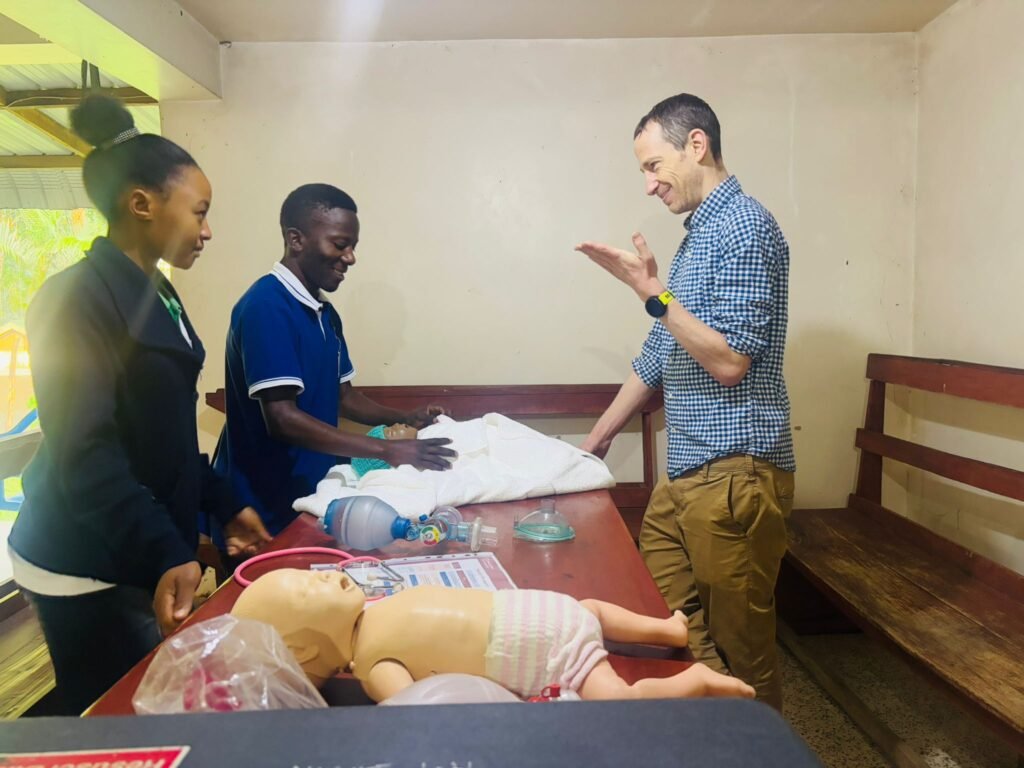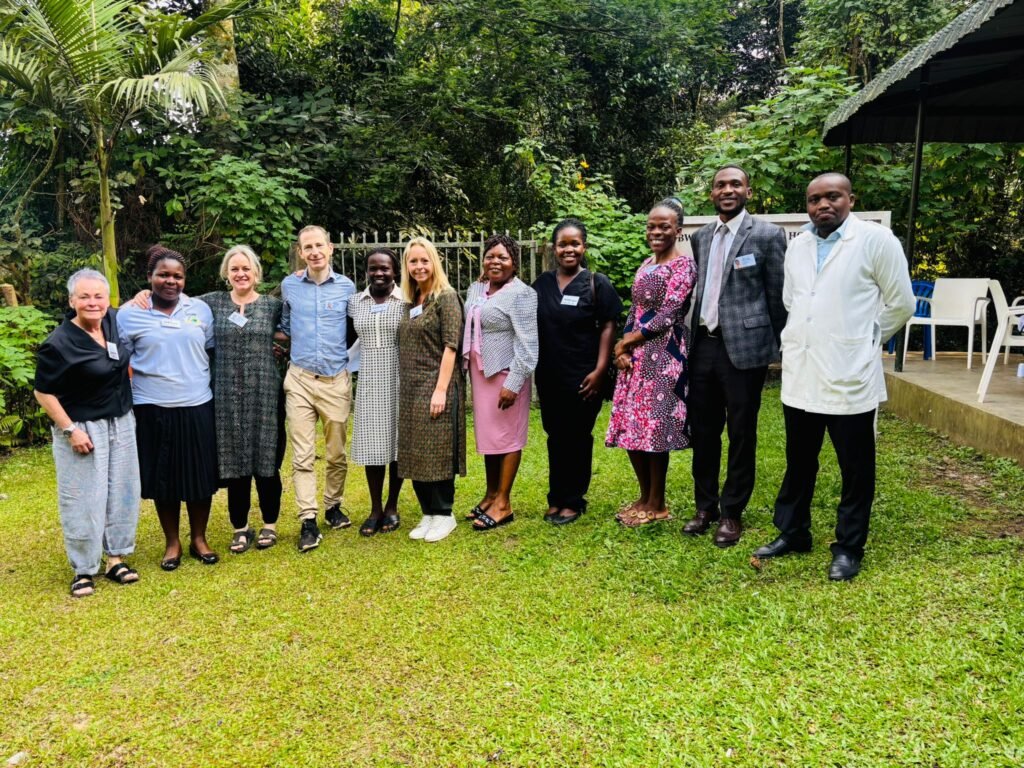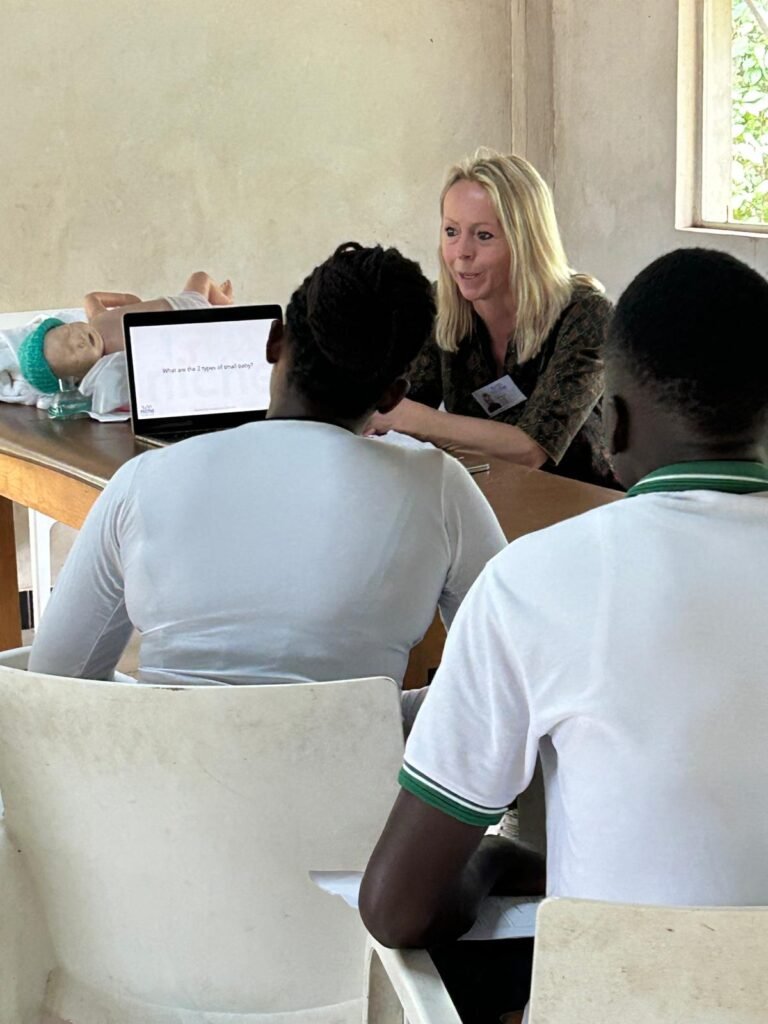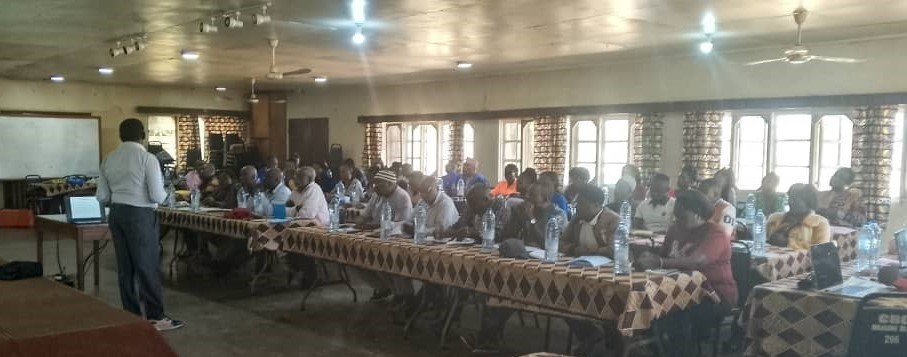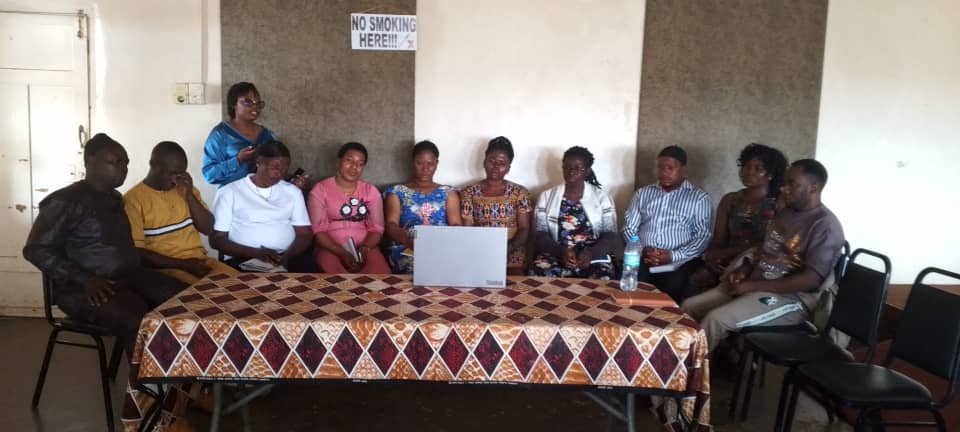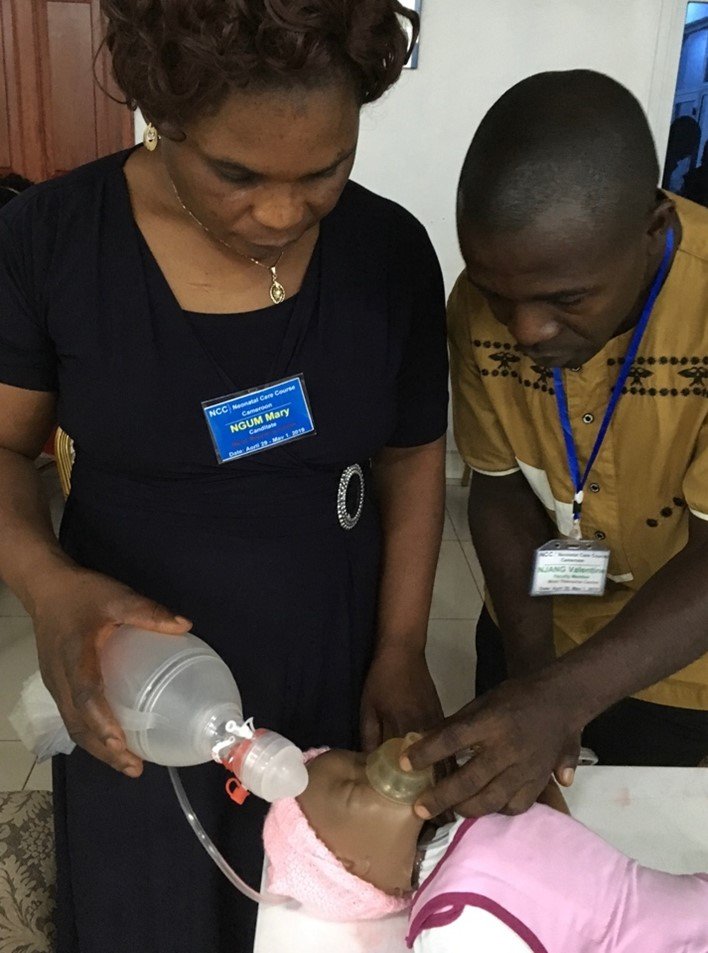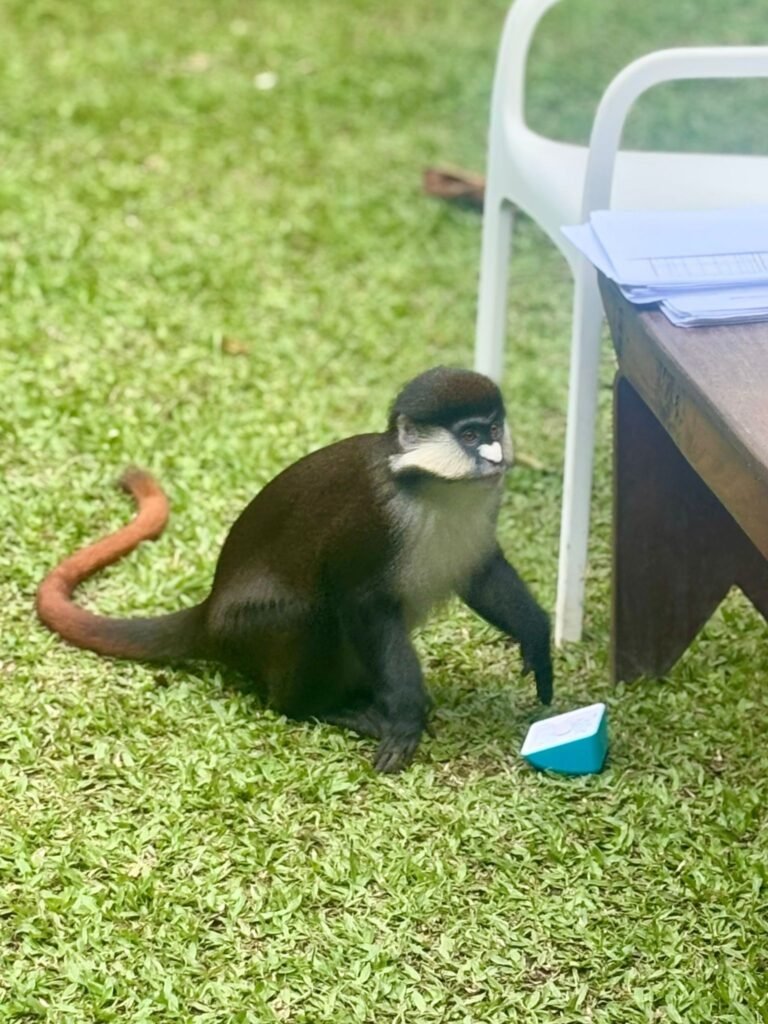
The red-tailed monkey is a species of guenon native to central Africa. Other common names include the black-cheeked white-nosed monkey and the red-tailed guenon. Their home range extends throughout the Central African Republic and the Congo, with southern Sudan as the northern boundary and northern Zambia as the southern limit (https://neprimateconservancy.org/red-tailed-monkey/):

There are quite a few bold members of the troupe that is based in the trees around the hospital. They steal food from the hospital canteen and anything bright and interesting they find lying around. One of the instructors’ bathroom was raided on an earlier visit of ours to Bwindi, soap eaten and pink, shiny razor seen lying in bits in the forest the other side of the fence!
UK instructors getting excited about monkeys watching the course intently through the window is probably the equivalent of Ugandans getting excited about seeing a squirrel in a UK garden. All part of the experience!
